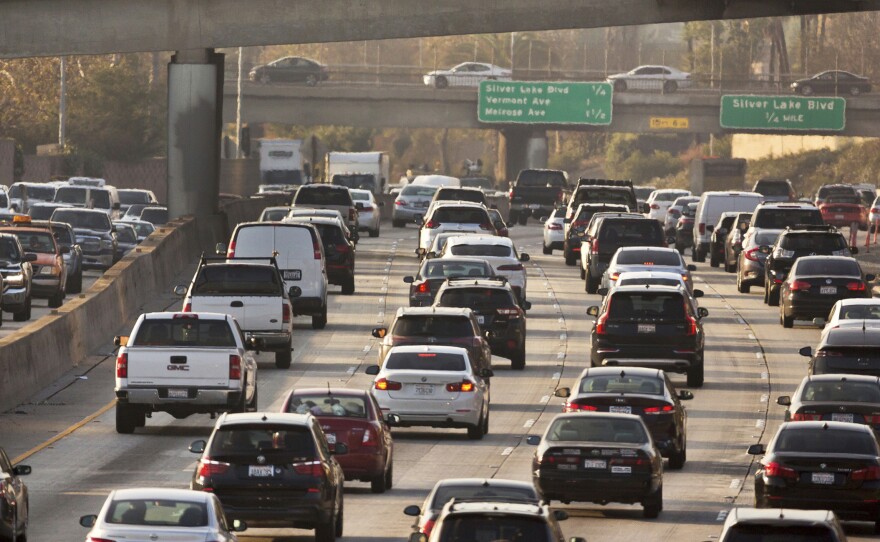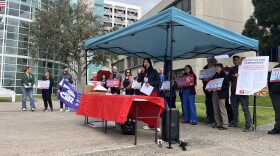The Trump administration has finalized its rollback of a major Obama-era climate policy, weakening auto emissions standards in a move it says will mean cheaper cars for consumers.
"By making newer, safer, and cleaner vehicles more accessible for American families, more lives will be saved and more jobs will be created," said U.S. Secretary of Transportation Elaine L. Chao in a statement.
But consumer watchdog organizations, environmental groups and even the Environmental Protection Agency's own scientific advisory board have raised concerns about that rationale, saying the weakened standards will lead to dirtier air and cost consumers at the gas pump long-term.
Environmental Protection Agency administrator Andrew Wheeler called the new rule a move to "correct" greenhouse gas emissions standards that were costly for automakers to comply with.
"Our final rule...strikes the right regulatory balance that protects our environment, and sets reasonable targets for the auto industry," Wheeler said in a statement.
The Safer Affordable Fuel-Efficient (SAFE) Vehicles Rule will toughen carbon dioxide emissions standards by 1.5% a year through model year 2026, compared to about 5% a year under the Obama policy.
The Trump administration originally proposed freezing the standards altogether without any increase. It modified the rule after push back from not only environmental groups but also some automakers, who worried they will be out of step in a global marketplace increasingly geared toward lower emission cars and trucks.
Still, critics say the new rule will lead to nearly a billion additional metric tons of climate warming CO2 in the atmosphere, and that consumers will end up losing money by buying about 80 billion more gallons of gas.
"This rule will lead to dirtier air at a time when our country is working around the clock to respond to a respiratory pandemic whose effects may be exacerbated by air pollution," said U.S. Senator Tom Carper (D-Del.) in a statement. He's the top Democrat on the Senate Environment and Public Works Committee.
The Trump administration asserts the new rule will save lives because Americans will buy newer, safer vehicles. But Carper points out that its own analysis finds there would be even more premature deaths from increased air pollution.
For that reason and others, the new standards are sure to face legal challenges. In fact, even the Trump administration's own science advisers have said "there are significant weaknesses in the scientific analysis of the proposed rule."
"The rollback of the vehicle emissions standards is based on analysis that is shoddy even by the shockingly unprofessional standards of Trump-era deregulation," said Richard Revesz of the Institute for Policy Integrity and Dean Emeritus at New York University School of Law.
California and other states are also likely to file suit against the rule. They've asserted their long-standing right to set their own, stricter emissions standards, something the Trump administration has also challenged.
A worst case scenario for automakers would be different standards in different states. The new policy may ultimately be decided by the U.S. Supreme Court, but the uncertainty waiting for that would exact its own toll on an industry that must plan years ahead.
Thomas Pyle, President of the American Energy Alliance, welcomed the new standards. In a statement, he said the Obama-era mandate was "impossible to achieve without dramatically altering the automobile market or making the cost of vehicles out of reach for most American families. This new... rule will make cars more affordable for consumers at a time when they need it most."
The Trump administration has been pushing ahead with a number of environmental rollbacks, aiming to finalize them well ahead of November's election. That would make it harder for a Democratic president, if one were elected, to reverse them again.
Copyright 2020 NPR. To see more, visit https://www.npr.org.






